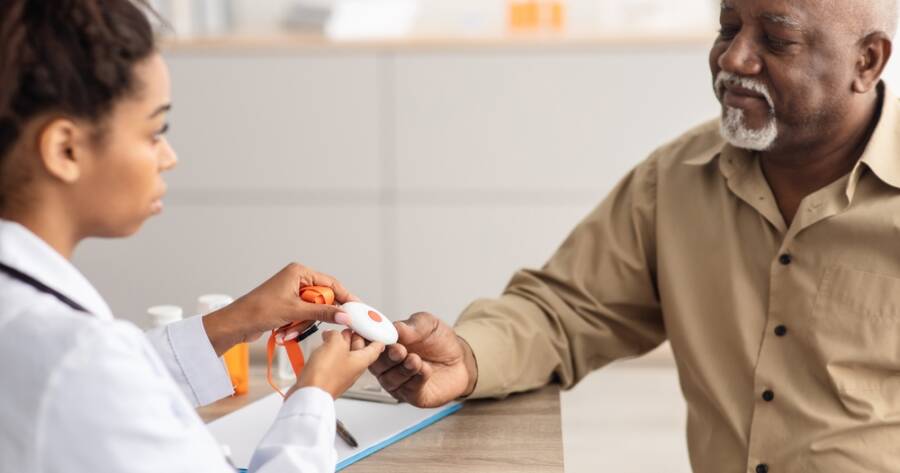Elder care monitoring systems are transforming senior safety through innovative technology and caregiving integration. Featuring tools like fall detection and wellness tracking, systems such as Nomo Smart Care and EnvoyatHome offer 24/7 oversight while preserving privacy and independence. Modern advancements enhance health outcomes and reduce emergency visits, promising improved quality of life for seniors.
Innovative Elder Care Monitoring: A Modern Safety Net
Elder care monitoring systems have revolutionized the way we ensure the safety and well-being of seniors. These systems offer comprehensive solutions that merge technology and caregiving, providing 24/7 health tracking that previously required significant personal attention. One exemplary system is the Nomo Smart Care Essential Kit, which features a variety of tools, including a Smart Hub and Satellite range extenders designed to offer round-the-clock monitoring. These devices use secure WiFi, allowing seniors to remain independent without the need for a landline through advanced gadgets.
Connected Care’s remote patient monitoring (RPM) highlights the importance of technology to keep seniors safe and independent. Utilizing telehealth tools, Connected Care empowers older adults to live independently while still under professional care. It incorporates devices that detect falls using 4D-radar-enabled sensors and track wellness with motion sensors, which are non-intrusive and maintain privacy while offering critical health insights through cutting-edge remote monitoring.
Main Features of Elder Care Monitoring Systems
The advancement of elder care monitoring systems is apparent in their diverse features. For instance, Nomo Smart Care incorporates fall detection and caregiver notifications for rapid response, enabling quick alerts. Another system, Home Helpers Home Care, offers 24-hour elder care facilitated by Direct Link® wearable technology which features motion monitoring, fall detection, and quick access to emergency assistance, giving peace of mind to both seniors and their families with their wearable technology.
Furthermore, EnvoyatHome offers passive remote monitoring that alerts caregivers to undetected safety and health risks. The technology uses motion sensors to gather data, transforming it into actionable behavioral insights. This allows for early detection of cognitive decline, safety hazards, and wellness concerns through real-time alerts without the need for seniors to wear or engage with devices actively.
Privacy and Ease of Use
One of the primary benefits of these systems is their focus on privacy and user-friendliness. Traditional camera surveillance systems are often seen as intrusive. In contrast, modern solutions like Nomo Smart Care utilize motion sensors for non-invasive monitoring, ensuring seniors’ privacy is preserved without intrusive methods. Additionally, systems like EnvoyatHome are designed for easy setup, with installations being quick and straightforward, often taking less than an hour and not requiring professional assistance for simple setup.
Medical Benefits and Health Outcomes
The integration of remote patient monitoring into elder care not only supports daily well-being but also immensely impacts health outcomes. According to data-driven insights, these systems provide continuous health tracking, allowing for early intervention in potential health issues. This proactive approach reduces the need for emergency room visits by up to 40%. The systems also promote medication adherence, crucial for managing chronic diseases such as diabetes and heart disease.
These technologies are crucial for enhancing preventative care and personalizing health plans. By capturing vital health data and maintaining open communication between seniors and healthcare providers, these systems reduce the risk of hospital readmissions, thereby offering substantial cost savings for families by optimizing healthcare delivery.
The Future of Elder Care Monitoring
The future of elder care monitoring systems looks promising as technologies advance. The incorporation of Artificial Intelligence (AI), biosensors, and sophisticated wearable devices is expected to further enhance health tracking and predictive analytics. This evolution will continue to support geriatric care and improve overall healthcare delivery. As the market expands, these systems are poised to contribute more significantly to the quality of life for seniors, offering families deeper peace of mind while allowing their loved ones to age gracefully and safely in their familiar home environments.
Why You Should Learn More About Elder Care Monitoring Systems Today
Exploring the potential of elder care monitoring systems is crucial for those looking to enhance the safety and independence of the seniors in their lives. With 24/7 health tracking, these systems offer cutting-edge solutions that combine safety with dignity.
The integration of such comprehensive care not only provides peace of mind but also supports a proactive approach to senior health and well-being. Delving further into the available options will equip families and caregivers with the knowledge to make informed decisions about elder care, ensuring their loved ones enjoy their golden years with security and comfort.
